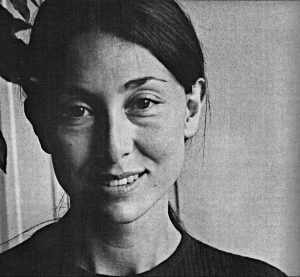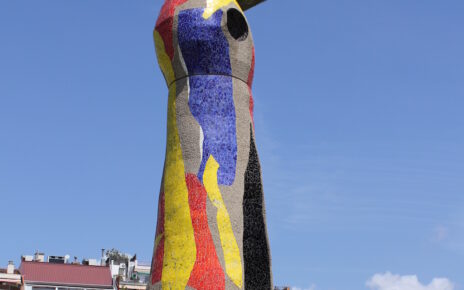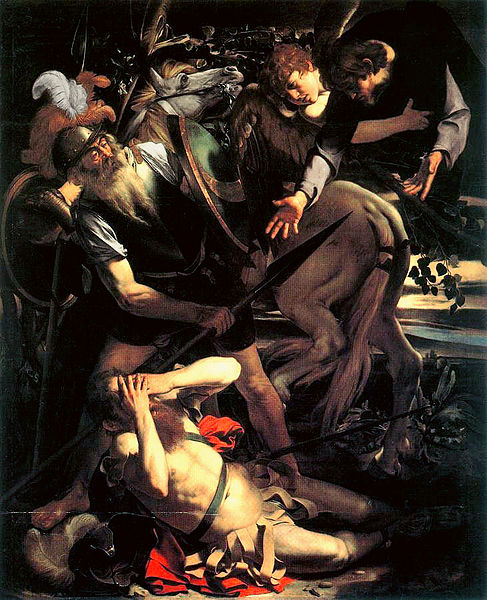Religion and European Philosophy: Key Thinkers from Kant to Zizek. Edited by Philip Goodchild and Hollis Phelps. New York: Routledge, 2017. ISBN 10: 1138188530. Hardcover, Paperback, E-Book. 512 pages.
Philosophy of religion, as a sub-discipline within the field of religious studies proper, has been the subject of much contention for some time now. Often accused of “crypto-theology” as opposed to more ethnographic work, it can seem to straddle the sometimes fuzzy lines between philosophy and religion. However, as Bradley Onishi has made clear in a recent article appearing in the Journal of the American Academy of Religion,there is a distinction of purpose between continental philosophical theology, which seeks to defend, improve, or advance (Christian or Jewish) theology by way of philosophy and philosophy of religion, which is dedicated to exploring the potential resonances and dynamisms between philosophy and religious phenomena, particularly as they bear upon scholarly approaches to secularity.1
Indeed, where philosophical theology ends up simply advocating for one tradition over or against another, philosophy of religion as a largely non-confessional discipline takes up the mantle of critically examining many of the “theories and methods” which are employed in the study of religion, often assumedly secularly so. While this sometimes goes against the grain and much to the chagrin of some in the field, it must be said, as Onishi also claims, that by being informed by philosophy of religion, “religious phenomena can reshape our secular conceptions of the secular.”2
Enter Religion and European Philosophy: Key Thinkers from Kant to Zizek, edited by Philip Goodchild and Hollis Phelps, featuring a wide array of scholars working within the subdiscipline. Intended as a first-of-its-kind introductory volume for upper-class undergraduate and graduate students, as well as others on the outside looking in, the book charts the various trajectories within continental philosophy of religion that begin with the Kantian “Copernican revolution” in epistemology and continue on to today with contemporary figures such as Alain Badiou, Giorgio Agamben, François Laruelle, and Slavoj Žižek.
Phelps suggests in the introduction that Religion and European Philosophy serves as a concise survey of both the history of continental philosophy and its current state of affairs as it relates to the study of religion broadly. It should function as a resource that offers students a firm ground to stand on in order to grasp the breadth of the continental tradition. Therefore, as a graduate student in religious studies who firstly completed an undergraduate degree in theology, I felt that I was in the perfect position to offer a review of the text as a member of the target demographic and found it helpful in filling in some of the remaining gaps as I continue to orient myself to continental thought.
Clocking in at just under 500 pages, Religion and European Philosophy can seem like a daunting read as an “introductory” text.  However, the 34 chapters are set up in approximately 10 page increments (not including notes and references) so as to both stand on their own as introductions to specific thinkers as well as flow together to paint a coherent portrait of the continental tradition. Broken up into five sections, the text arranges thinkers according to their relationship to one of five philosophical movements: German Idealism, Critical theory, Living Experience, Phenomenology and Hermeneutics, or Structuralism, Post-structuralism and Beyond. This situates them not chronologically then, but thematically, thereby emphasizing the relationships of the thinkers to their ideological and material contexts.
However, the 34 chapters are set up in approximately 10 page increments (not including notes and references) so as to both stand on their own as introductions to specific thinkers as well as flow together to paint a coherent portrait of the continental tradition. Broken up into five sections, the text arranges thinkers according to their relationship to one of five philosophical movements: German Idealism, Critical theory, Living Experience, Phenomenology and Hermeneutics, or Structuralism, Post-structuralism and Beyond. This situates them not chronologically then, but thematically, thereby emphasizing the relationships of the thinkers to their ideological and material contexts.
Sometimes this categorization holds up, and sometimes it seems slightly dubious considering the diversity and breadth of the continental tradition. Nonetheless, it bodes well for a volume such as this to go the thematic route since arranging the essays chronologically might bring about not only confusion but also misunderstanding as to how certain ideas develop. Indeed, much of philosophy can be read as one thinker responding to another and another in every direction. In that case, Religion and European Philosophy helps to navigate the rhizome somewhat so as grasp what exactly is going on.
Philip Goodchild begins the first section on German Idealism with an essay on Immanuel Kant, reminding us that “Kant’s critical turn towards the transcendental subject—exploring how the nature of human thinking imposes conditions upon all understanding of reality—is the precursor to all that follows” (17). Likewise, Daniel Colucciello Barber makes a particularly helpful remark in his essay on Theodor Adorno in the Critical Theory section when he states, “It has become commonplace of European philosophy to presume a bifurcation between philosophers of difference and philosophers who follow the terms set forth by Hegel” (127).
Comments such as these help to map continental thought for the reader, offering sometimes inventive insights and unconventional perspectives. Roland Boer, for example, makes the case that Karl Marx’s now famous “opium of the masses” remark might not best be understood as the rejection of religion but instead an acknowledgement of its multifaceted nature, its capacity as both a tool of oppression and also of liberation (93-94). Bruce Ellis Benson makes a similar claim about Friedrich Nietzsche, contending that his attempted rejuvenation of the cult of Dionysus renders him, in the last instance and despite his hatred of Christianity, “a deeply religious man” (175).
In this same sense, chapters on Ernst Bloch and Walter Benjamin by Ian Bacher and Agata Bielik-Robson, respectively, emphasize how “irreligious” thinkers made use of theological language in new ways, engaging religion in such a fashion that the borders between the theological and the secular become obscured—this in similar ways to contemporary thinker Giorgio Agamben, as Adam Kotsko shows.
Even thinkers who do not explicitly engage with theology in a sustained or comprehensive way, such as Gilles Deleuze, tend to utilize theological ideas in the service of “immanence,” although, as Kristien Justaert notes, drawing this out is “no easy task” (370). As the reader will learn, however, many thinkers in continental philosophy began as students of theology, meaning that not only is secularism wedded to Christian theology, but many of those who continue to critically reflect on the concept are steeped in a knowledge of the tradition from whence it came. This should not invite accusations of crypto-theology, then, but instead make clear how formidable both their critiques and usage of secularity can be.
It should also be said that some chapters perform the function of an “introductory text” better than others. The chapter on Martin Heidegger by Ben Vedder, for example, reads in part as the runup to Vedder’s excursus on Heidegger’s speculation regarding the “last god” instead of firstly providing a substantial biographical section and then a balanced survey of the thinker’s ideas and relevance to the study of religion and theology. Indeed, Heidegger specifically has been crucial for many 20th century theologians, and to neglect reflection on the significance of his famous “question of Being” or writings on technology does the reader a disservice. In addition, post-Heideggerian thought has dominated the field of continental philosophy ever since, meaning that the background work on some other thinkers offers more content on Heideggerian thought than the actual chapter on Heidegger.
I would also have liked to see more chapters dedicated to feminist philosophers. This would have rounded out, to a certain extent, a portrait of continental philosophy which is already thoroughly dominated by the white male perspective by virtue of its subject matter. In particular, a chapter on Simone de Beauvoir would have fared well, although Phelps provides a just rationale for the inclusion and exclusion of various thinkers: everyone simply cannot be pleased (9). In addition, it would be helpful for more of the authors to have highlighted how various thinkers might relate to non-Western as well as non-Abrahamic traditions. This is only mentioned in a handful of places and, with the notable exception of Justaert’s sustained treatment of Buddhism in the Deleuze chapter (374-375), is done in passing.

It is to the volume’s benefit that the chapter on Julia Kristeva by Catherine Tomas addresses at length the accusations of racism and Islamophobia against her (417-420). Being aware of this, especially when it is a widespread criticism of a thinker, is imperative so as to not inundate oneself with certain texts and risk missing the larger context of their oeuvre or, worse, adopt their problematic views. A short discussion with regard to Heidegger’s involvement in the Nazi party would have also served the same purpose and alerted the reader to ongoing controversy surrounding his legacy, a fact that Vedder curiously neglects.
In conclusion, I want to return to the current state of religious studies and what philosophy of religion can mean for its future. We should in the end consider that what religious studies might need is in fact what we might call a “Laruelle moment.” That is, a realization that, as goes Laruelle’s thesis, just as philosophy cannot claim privileged and exclusive access to what are traditionally “philosophical” questions falling within a prescriptive domain, religious studies should likewise not claim exclusive access to “religious” questions which sometimes necessitate philosophical reflection or input from other disciplines.
What philosophy of religion does then is not merely to interject so as to unnecessarily problematize things, but instead to enrich religious studies by way of critical reflection. As Phelps says in the introduction to Religion and European Philosophy, “The ultimate goal of the volume, then, is to provide resources that will incite students to chart new, unexpected paths in their discipline” (3). In the spirit of the Deleuzean “creation of concepts,” then, this is perhaps the true purpose of philosophy of religion within the larger field.
Benjamin Steele-Fisher is a graduate student in religious studies at the University of Denver. His primary interests include the intersection of political theology and critical theory.
_________________________________________________________________________________________________
[1] Bradley Onishi, “The Beginning, Not the End: On Continental Philosophy of Religion and Religious Studies,” Journal of the American Academy of Religion 85, no. 1 (2017): 2.
[2] Onishi, “The Beginning,” 21.




